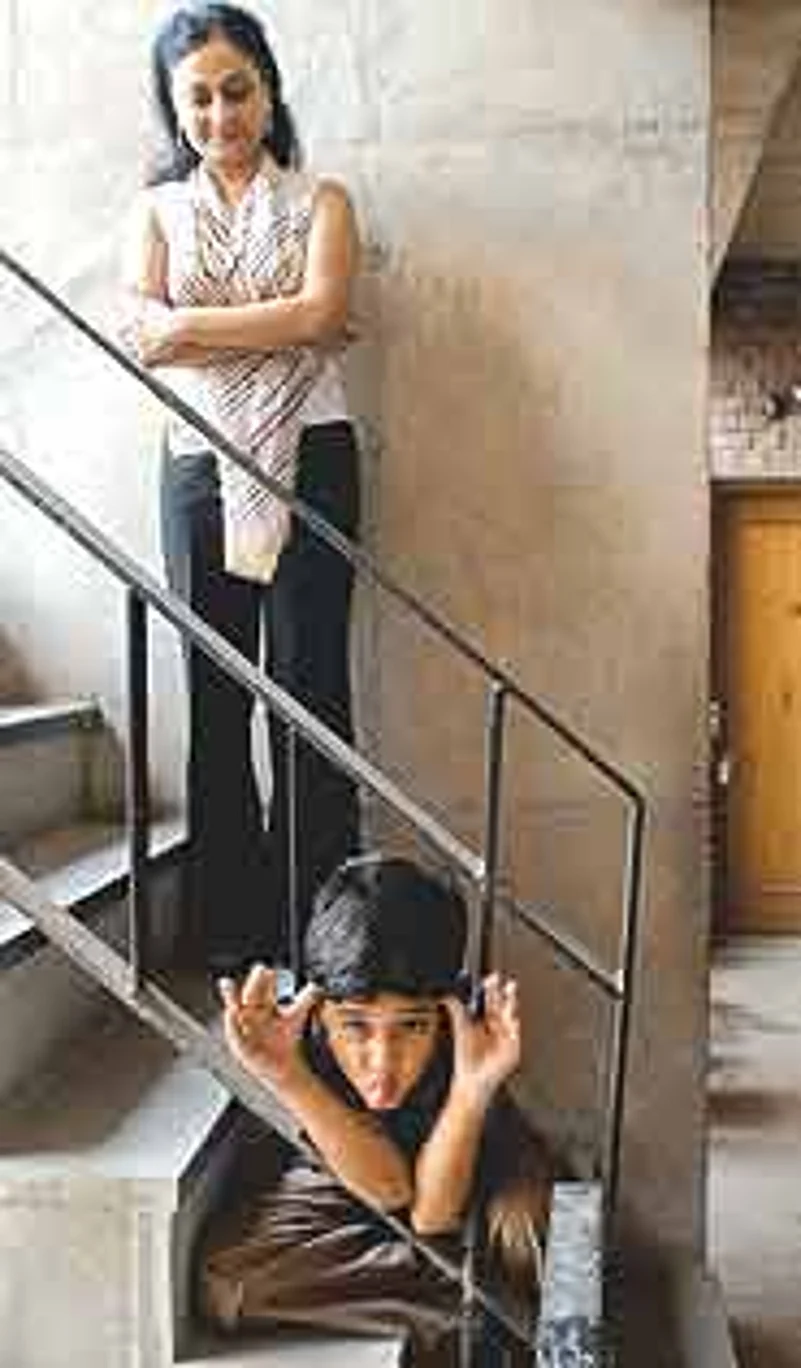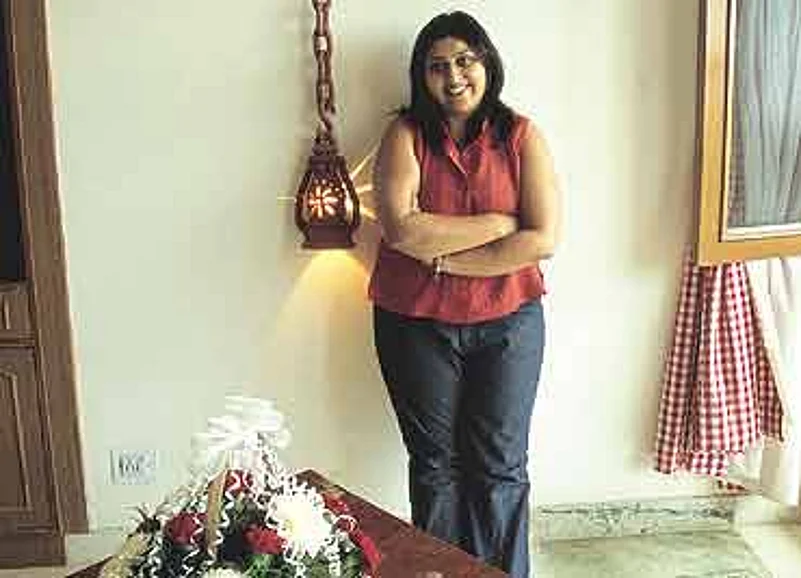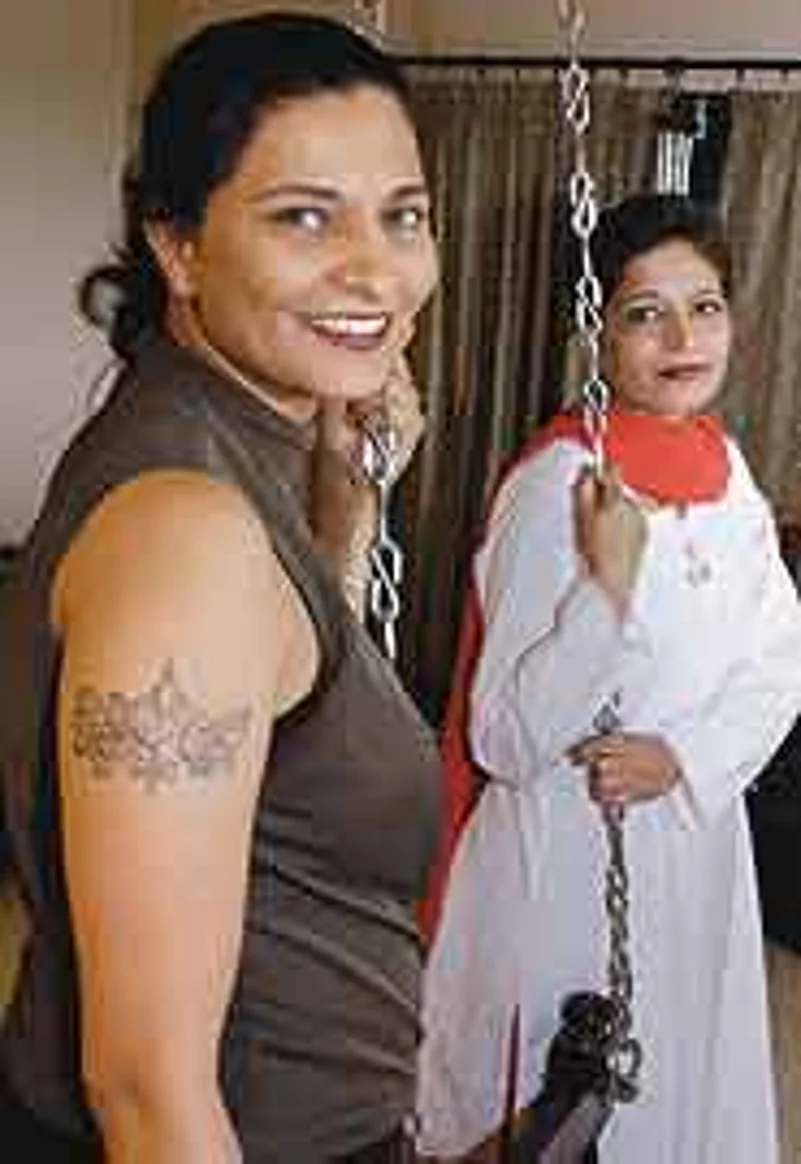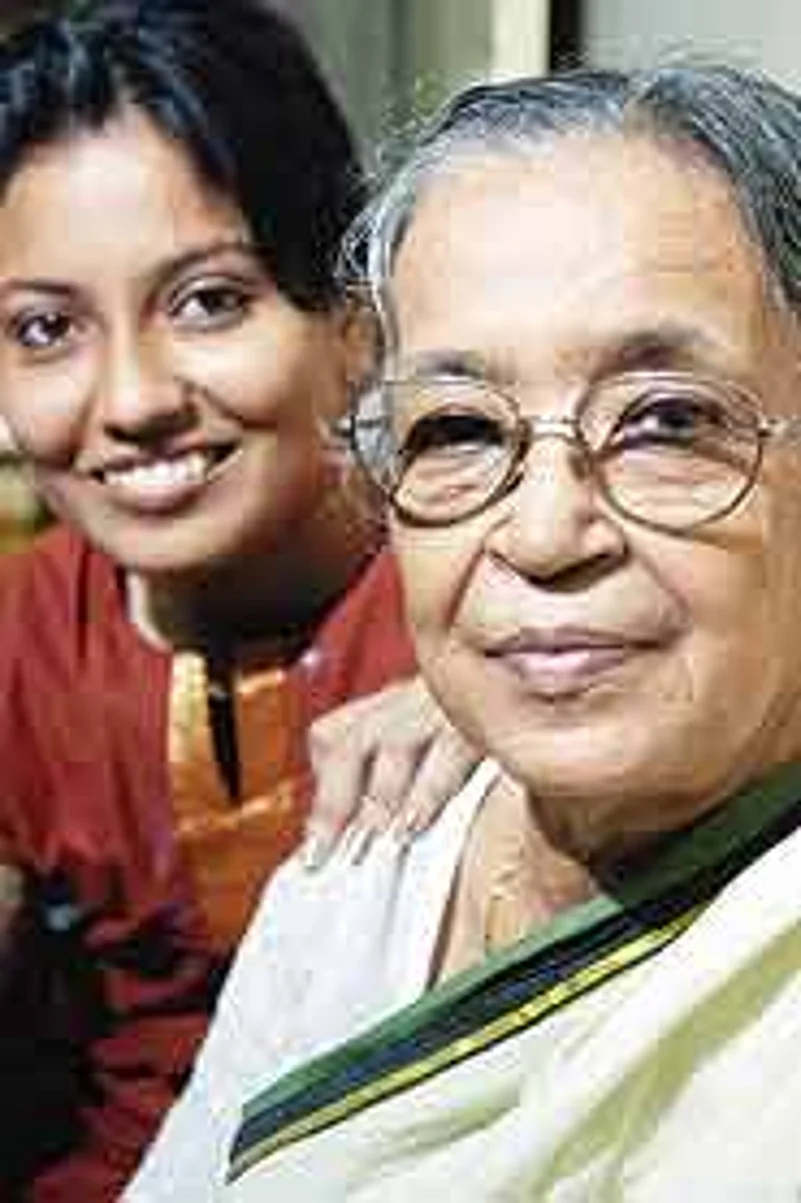


"It's sad to see employed women consulting their husbands before even buying saris for themselves," shares Chennai-based Dr Prithika Chary, 57, the country's only woman neurologist-cum-neurosurgeon, "Women in traditional roles try to be so many things to so many people that they disappear in the process." Standing tall by the personal choices she has made for herself, Prithika has never felt her life's less complete because she's preferred to remain single. "Younger women today, who're making similar decisions, are faring much better though. For instance, today's girls can have relationships with men that are asexual. That wasn't the case when I was young," she recalls, "With two married sisters, I took care of my parents till their death, but my father always griped about not having birthed a son."
The existing value paradigm refuses to acknowledge, let alone appreciate, the changes in family that are being sought by many of today's women. Sacrifice, unconditional giving, male notions of fidelity, loyalty and compliance have counted for womanly virtues in the family so long. Follows then that any personal choices she makes contrary to these qualities are seen as misconduct, and find her at the receiving end of societal backlash.

Not only did no one understand why a management trainee at Airtel, Bulbul Jaidka, 23, would want to stay separately in a flat in Mohali, so close to her parents' house in Chandigarh, but "I know that some of my father's friends even called me names for living alone". What "people would say or think" about a young unmarried daughter living alone in the same town as them had been a concern with Bulbul's parents anyway.But they supported her when she explained herself: "This flat is my own. Here, I can be myself. I know that three or four years down the line I'll get married and that will bring with it its own shackles."
Even after seeing Gargi Sen thriving in her long-distance marriage for so many years, many an acquaintance still views her case as a failed wedlock: "I have been asked why I can't hold him, make him a family man!" In small-town Narsinghpur, when lawyer Rupa insisted on staying separately from her husband for her career, disapproving people plied her with unsolicited advice on the need to observe wifely duties. Her in-laws had anyway objected to the choices she'd made even earlier: "They didn't want me to put my llb to use, they insisted I be a good housewife. My husband helped me stand my ground."
Likewise, Nanki draws support and strength from her father to deal with "snide remarks and sniggers" for being a single, artificially-inseminated mom: "Initially, my neighbours were hostile towards me, but my father's acceptance of me changed that somewhat. Then, when my son grew up, they wouldn't talk to him or let their children play with him. During his admission into school, the clerk wouldn't accept my form because my son had no father. Finally I had to undergo a special interview with the principal who wanted to be assured that I was the right kind of parent."
Ergo the need to enact legislation, form new mediation structures and support networks to deal with the many new choices that women today are making to rewrite the rubric of the family, advocates Vibhuti Patel of Mumbai University's Centre for Women's Studies. "For instance, with such large numbers of women opting to be single mothers now, a procedural infrastructure to accommodate and facilitate their choice must be created," the activist-academic argues. "Too many women are making these choices for them to be treated as just personal decisions, these choices must start reflecting in policy and legislation."
But do even existing laws and rights find gender-sensitive interpreters? Sample this Delhi High Court ruling (Harvinder Kaur versus Harmander Singh, 1984): "Introduction of constitutional law in the home is most inappropriate. It is like introducing a bull in a china shop. It will prove to be a ruthless destroyer of the marriage institution and all that it stands for. In the privacy of the home and the married life, neither Article 21 (Right to Life and Liberty) nor Article 14 (Right to Equality) have any place."
So, till appropriate laws and their apt interpreters are in place, women who are redesigning their families to fit their dreams and desires will have to invent their own coping mechanisms. And many of them seem to be doing it by simply deciding to enjoy their new set-ups.

Bangalore-based sisters Gauri and Kavita Lankesh not only preclude, they sometimes even pre-empt society's reactions to their forty-something singlehood. Editor of Lankesh Patrike, a popular Kannada weekly tabloid, Gauri has been divorced for nearly two decades now; her sister Kavita, an award-winning filmmaker, is also divorced. Kavita recently became a single mom. She chose to mark the event not by reticence, withdrawal, or explanations, but a celebration of the birth of her new family: Kavita spoke to the national and regional press about her single motherhood, even posed with her baby for the media. Say the sisters: "We've found our rhythm in life."

So has Calcutta's Binapani Ghosh at 76. Sixteen years ago, after her husband's death, each of her three children wanted her to live with them, but she refused them all. "It's great to have my children live close by, but this is my home.I don't want to trade it for staying cooped up in a room in someone else's house." Instead of being an appendage to her children, in fact, Binapani has her granddaughter Atreyee, a management student, staying with her.Well, whenever the girl's at home, that is. Life is a happy story for Binapani, punctuated by cleaning, cooking, shopping, Uttam Kumar matinees on TV, film rags, her morning-walk friends. Just as Mumbai's Pushpa Bhagat, about Binapani's age, and also staying by herself, says: "How times have changed, women can choose to be so much more today." Because Pushpa doesn't have to play the bhajan-singing granny today, she has her friends coming over, serves them drinks and sometimes even goes to the bar with them.
"Of course, more and more women are restructuring their families around their own needs today. And not just upper-middle-class urban women, but even women living in our small towns. But we shouldn't just stop at recognising this as a trend, we have to work at further energising this trend," says Ranjana Kumari of the Delhi-based Centre for Social Sciences, "because the family, in its conventional mould, has often been an oppressive institution for the woman, battering her, subsuming her." But not much longer. Because her quest to find the New Family has begun. And she's discovering Herself on the way. And the Togetherness she is in search of.


























